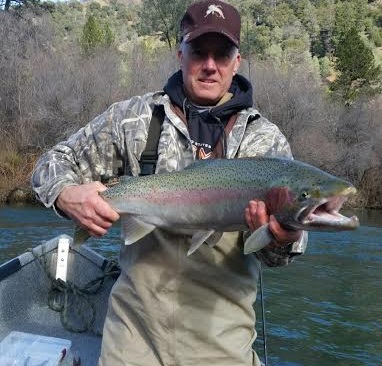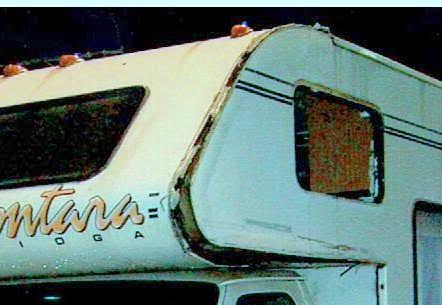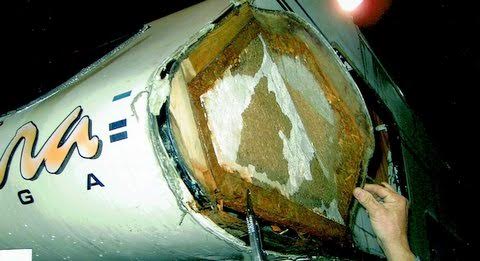Fish Report for 2-9-2017
Dry rot on recreational vehicle
by Don Stec
2-9-2017
Website
With all the rain this year, the stage is set for a major production of a fungus that attacks wood, it is known as dry rot. Surprisingly, many owners do not know that wood is often used in the structure of their RV. That includes motor homes, travel trailers, truck overhead campers and boats. Many owners know their motor home and trailers are constructed of metal and fiberglass, but do not realize the interior wall structure is often wood. Dry rot is caused by water penetration. If not dried immediately and thoroughly, moisture will remain, causing the ideal conditions for the fungus to develop. The fungi will continue to grow and feed on the wood. If even a hint of moisture is still present the fungi will continue to grow. The wood will lose all its structural strength if water leaks are not sealed and the dry rot chemically treated.
Unfortunately, dry rot is often present for a year or two before the vehicle owner sees the signs of a serious problem. Usually, the cause is a small leak in the outer skin of metal or fiberglass, or a window that has lost its seal. The moisture is not enough to be obvious as a leak, but it is enough for fungus to grow. Usually the owner's first indication of a problem is when moisture is evident on an inside wall or on the floor, or the outside skin is bulging.
It is common for an owner to wait too long and the structure is greatly weakened.
The first sign of dry rot starts as a brown stain. At this stage, if the fungi has not penetrated too deeply and structural strength is still sufficient, a dry rot “killer” may be applied to prevent it from re-growing. There are several products on the market. They are available at hardware stores and marine coating dealers. Under categories with names such as Dry Rot inhibitors and preventers. They are water thin products containing rot killer and inhibitor chemicals. Most apply with a brush, some are in a spray can.
The next stage: The stain darkens to a moldy appearance as the fungi begin to digest the wood, strength is compromised. The wood turns darker brown with blackish areas. Cracks appear and the wood becomes soft. Pieces can now be easily broken away with little effort. At this stage the dry rot must be cut out. If the area is small, there are epoxy repair kits available and they may be used to replace the lost wood. If the area is large, the entire section of wood may have to be replaced.
The final stage: The wood turns black and starts to fall into small pieces and eventually powder. There is no repair. The entire rotted section(s) must be replaced.
If dry rot is suspected, you must have it inspected as soon as possible or the repair could be very costly. On a boat, it is often visible and caught early. On an RV it is often hidden from view and side outer paneling must be removed to inspect it. Once the paneling is removed, the owners are often surprised to see the extent of the damage. It is at this point an estimate can be given and it is generally to replace whole sections of inner supports and panels.
Wood attacked by dry rot fungus is not cured of the fungus simply because it is dry. The fungi becomes dormant, but will become active as soon as humidity in the air increases, even if the water leak is sealed. It must be treated with dry rot inhibitors.
Coachmaster Collision repair* is a past recipient of the District Attorneys award for honesty and integrity in business.
Don Stec is the founder of Coachmaster, a full service collision repair facility also specializing in the collision repair of RV’s. Now retired, Don is proud to have sold the business to long time manager Allan Gordon. Call Coachmaster at 530-243-1310, or stop by at 6851 Eastside Road. Redding, CA.
Photos
More Reports
My Outdoor Buddy (Nor Cal) Reports
for Wednesday, February 8th, 2017
Shasta Lake: Float and Fly takes WWBT
Trinity River: Trinity Steelhead
My Outdoor Buddy (Nor Cal) Reports
for Wednesday, February 1st, 2017
Shasta Lake: Ryan Friend takes WWBT Shasta
Baum Lake: Baum Lake continues to produce

Website Hosting and Design provided by TECK.net

